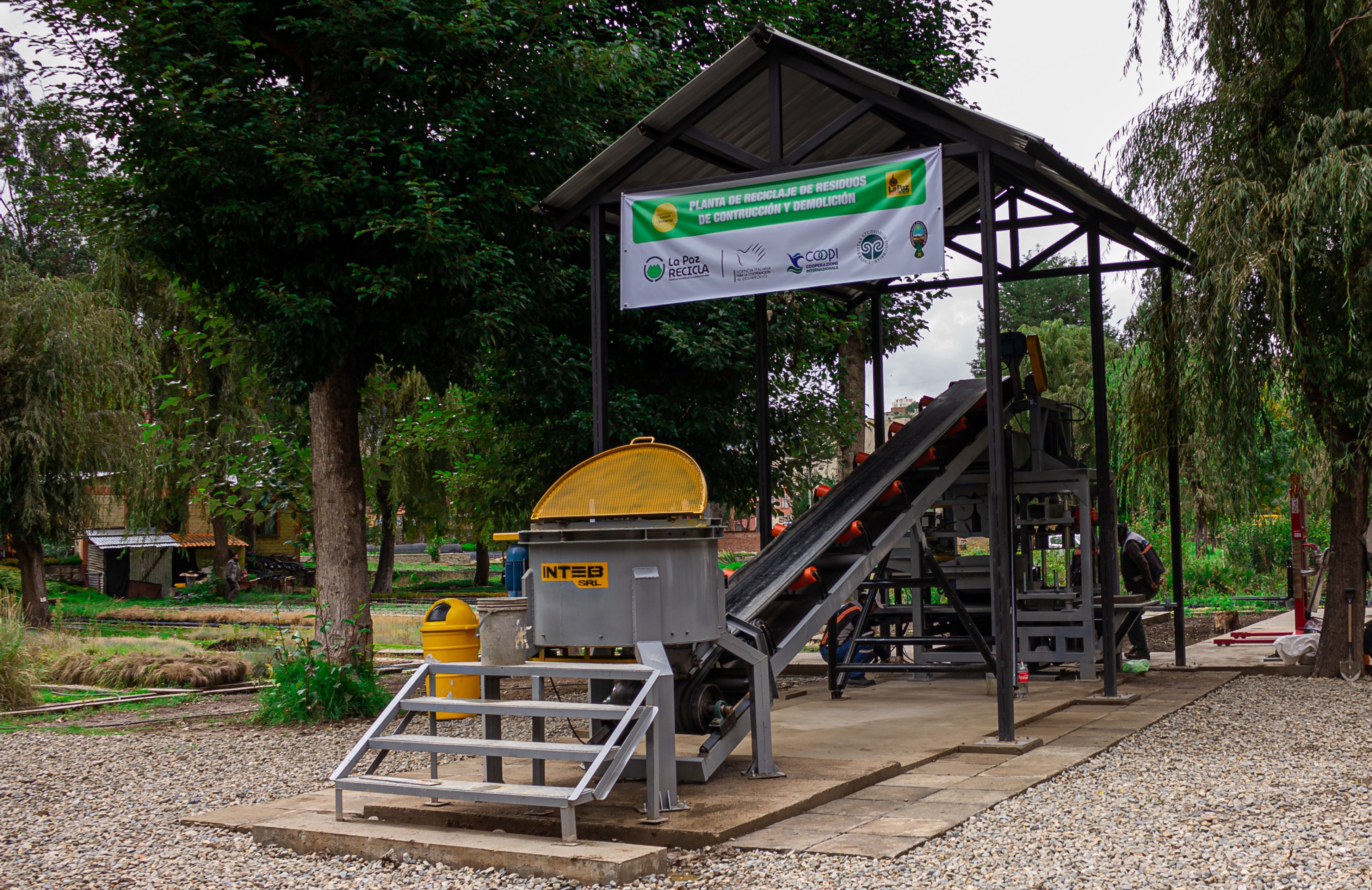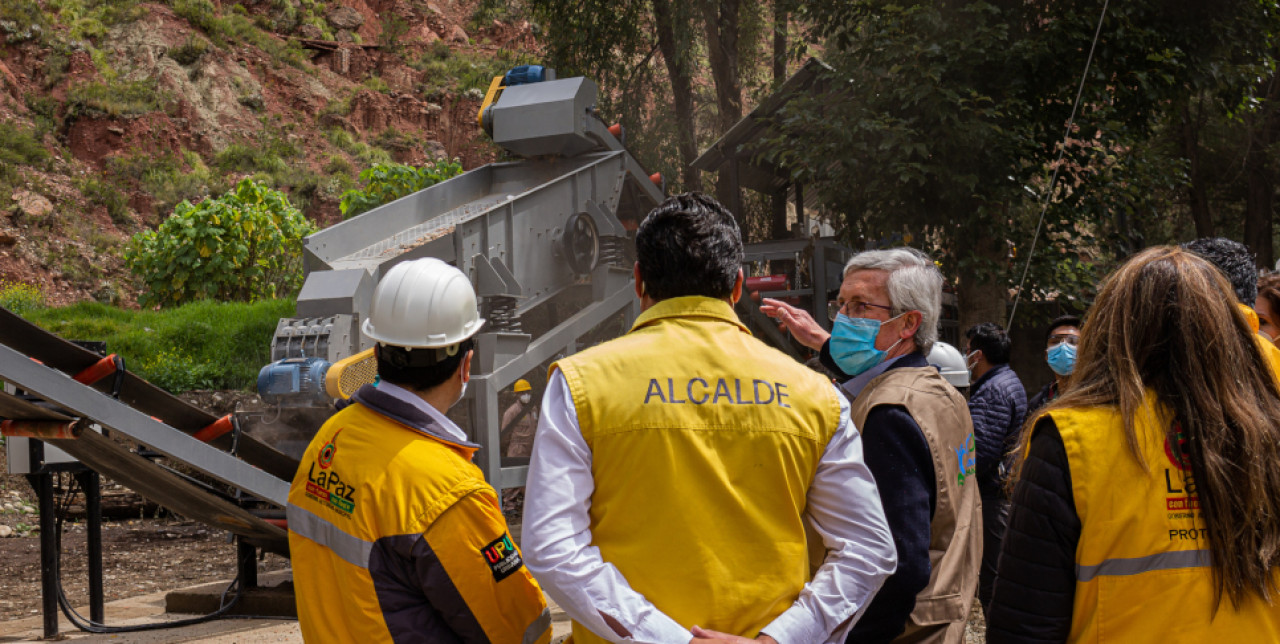26-11-2021 | di COOPI
Bolivia. New facilities for the treatment and recycling of urban waste
Globally, waste contamination is an environmental, social and economic issue. In low economic areas, which includes Bolivia, there is a lack of appropriate technologies and integrated management models to solve the long-standing problem of landfilling, open burning and various other pollution factors. In Bolivia, only 8% of landfills are controlled and recycling does not exceed 4% of the total urban waste generated.
Therefore, from September 2019, COOPI has activated the project "LaPazRecicla. Integrated approach to waste management in the municipality of La Paz, Bolivia. New technologies to promote the circular economy", funded by the Italian Agency for Development Cooperation (AICS), with the aim of contributing to the improvement of the environmental sustainability of the city.
In detail, the project aims to develop a capacity for the management of various types of solid waste and envisages the installation of innovative pilot plants for the recycling of certain product fractions of the waste itself. Currently, the installation of three machines for recycling preparation counts three product fractions of municipal solid waste: building materials, glass and plastic.
Waste building materials, mainly resulting from the demolition of houses, are generally scattered in an uncontrolled way, by representing often a danger in the territory of the city, as they may obstruct the normal flow of streams. In order to reduce this problem, a plant for the selection and treatment of waste building materials and for the manufacture of bricks using these materials has been built.

As for the glass shredding plant, it allows to grind the glass discarded by the citizens, by obtaining a second raw material of uniform granulometry but with a commercial value about four times higher than the selected waste as-is. This is a pilot machine which can guarantee the collection of technical and economic data to scale up the system to a larger plant.
The same principle is also applicable to the machinery for shredding and washing plastics, in particular low-density polyethylene, which is typically used for the distribution of fruit juices, milk and dairy products. A large part of this product fraction is generated in schools, areas where inclusive policies for children can be implemented and where a separate waste collection approach can be encouraged. Shredded and washed waste is three times more valuable than waste collected and stored without pre-treatment, assisting a circular economy of the waste product.
Thanks to the project, the three plants currently in operation guarantee the enhancement of recovery and recycling activities for waste products, promoting the circularity of materials, the reduction of environmental impacts, greater revenue from the sale of secondary raw materials and the strengthening of practices aimed at sustainability.
So, with a view to boosting the circular economy, during the current year, the project “LaPazRecicla. Integrated approach to waste management in the municipality of La Paz, Bolivia. New technologies to promote the circular economy", has contributed to strengthening separate collection and recycling in the municipality of La Paz. This has been achieved through the implementation of waste treatment plants and machinery, and the organisation of awareness campaigns to reinforce separate waste collection.
COOPI has been present in Bolivia since 1985, where it has intervened in several areas: the protection of human rights, the fight against the exclusion of indigenous peoples and assistance to communities affected by natural disasters. Currently, it is working on the development of sustainable techniques for community development and resilience.




 Bolivia
Bolivia